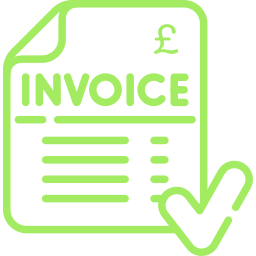There are plenty of articles and blogs available headed ‘5 steps to getting a business loan’ or ‘7 ways to get your loan application accepted’. But sometimes all you want to know is how borrowing works; what are the benefits and risks, and where can I get a small business loan quickly with the least amount of forensic inspection?
Business Borrowing
What have you got planned for your business? Are you looking to simply get your enterprise off the ground, do you want to improve your cash flow or do want to grow? Because there are products from lenders for almost every step of your business journey.
There are many advantages to borrowing money, regardless of what stage your business is at. For a start-up, borrowing money can ensure enough capital is available to bridge the gap between the time it takes to open the doors and to being in a position to benefit from a regular profit. For an established business it can be the difference between treading water and the next big growth opportunity.
Most businesses should be able to access a loan from somewhere, although your options can be limited by either your type of business or your financial situation. For instance, government loans are useful for start-ups, while cash advance is good for retail businesses with a trading history and regular cash or card sales.
Even your lenders can come in many shapes and forms; a lender is anyone willing to lend to your business. It could be friends, family, banks, peer-to-peer or a broker. Even the government has a financial investment arm tasked with lending to small businesses.
Types of Small Business Loans
Bank Loan – Perhaps the simplest option is a loan from your bank, although this depends greatly on whether or not you qualify. Bank loans are good because they can be a low-cost form of long-term access to funding. Although they often come with either personal guarantees or demand a certain level of security on them.
Peer-To-Peer Loan – Offered by the alternative lending industry where you borrow money from investors who are actively looking for some level of return on their investment. While bank loans can take time to arrange, P2P lending can be much quicker, with competitive rates (dependent on your credit history) and early repayment opportunities.
Government Start-Up Loan – Backed by the government and specifically for start-up businesses offering low rates and up to five years to pay them back.
Asset-Backed Loan – A loan secured by a business-owned asset like machinery, vehicles, property, land or stock inventory. If you have substantial assets then this is one of the easiest types of loan to establish.
Cash Advance Loan – Works by utilising future business sales in exchange for immediate funding. A cash boost at the expense of a percentage of future sales being directly paid back to the lender. (Also called business cash advance and merchant cash advance).
Cost of Borrowing vs Profitability
From the smallest to the very biggest of companies, the use of credit is interesting. Most small businesses will go to great lengths to examine whether or not they should take a small business loan, seeing debt as a bad thing. Whereas large corporations routinely use considerable amounts of debt as a vehicle for growth and expansion.
The difference between how big corporations view borrowing versus that of small businesses and small business owners is illustrated by the continuing reliance on small business owners on using their own personal finance to fund their businesses.
Utilising credit through small business loans allows a business to invest even more in sales, marketing or product lines. For your business, being in the right place at the right time, with the right lines of available credit, can result in gaining an advantage over your competition.
The bottom line here is that using credit allows companies to generate more profit than they would have without using it, even taking into consideration the additional costs needed to cover the borrowing.
So a business should be concentrating NOT on how much the small business loan is going to cost BUT: How much profit can you make by using this loan?
If you are in any doubt about whether or not you’re going to need to borrow to make your business a success then here are four reasons why you should:
Start-up – A business doesn’t become a business just from an idea. It becomes business when you have something tangible to offer, either physically or through a service. And in order for that to happen you need stock, products, machinery, a website, tools and transport. Your initial investment is important.
Money makes money – Every business has to borrow money in order to build products, services and customers. There’s nothing new in the phrase ‘you have to speculate to accumulate’. If everyone had plenty of money in the bank before they started their businesses, then no one would have a reason to start them in the first place.
Cash Flow – We say it all the time but cash flow really is the lifeblood of your business; with it and you can expand, pay your staff and suppliers and function efficiently; without it you struggle to pay your debts and are continually looking over your shoulder. With time your business can start to finance working capital through your profits, but until that time comes, and if you decide to keep reinvesting to grow, you’ll need to maintain your cash flow through another borrowing source, usually small business loans.
Business borrowing beats personal borrowing – Using your personal finance to fund your business doesn’t always make financial sense. If you have been saving your money up for a reason, be it a college fund, house extension or a skiing holiday then it just removes one line of financial defence from your funding resources. If you can borrow that money and still keep your personal finances in check then it is clearly advantageous both to your personal finance and your business finance.
The Risks of Borrowing
Debt of course isn’t always a rosy garden; it has its downsides too. One of them is the difficulty in qualifying for a loan, as banks become more cautious and requirements stricter.
Then there is the cost of repayment which means making your loan repayments every month including interest, whether your business is making enough money to cover it or not.
Some loans also have personal guarantees attached to them which means personal risk to business owners. Your home, property and personal assets can be used as security for business loans and this happens more for small businesses that can’t demonstrate a lengthy trading history.
Funding Guru Makes Borrowing Easier
When you borrow from Funding Guru, you’ll be borrowing against a network of over 80 lenders from a panel offering tailored solutions for your business needs. It can either be from one single lender offering the total amount or maybe from a group of lenders, all contributing towards the full amount.
When you accept a loan from us you’ll be required to make one payment per month back to us regardless of which lender has actually put up the money for your loan. We’ll do all the rest. We distribute funds, supply statements and offer business support. Your loan agreement with us is separate from our agreement with investors.
The whole process is simple:
1. Application – Simply fill out the application form answer a few questions regarding your name, business details and your loan requirements and press the ‘Submit Application‘ button.
2. Finding a loan for you – Our team may call you for further information, and to validate your submitted details, before processing your loan application and tailoring a solution for you. Depending on the level of risk assessed on your business will impact the interest rate and term.
3. Transfer of funds – Once the loan has been agreed by all parties we’ll arrange the funding arrangements.
What it means for the small business owner is that approaching an alternative lender like Access Commercial Finance results in utilising a market that is filled with investors looking to fund a business like yours.
These investors understand that having more investment choices is better for both borrowers and lenders. And this mutually beneficial approach is making finance quicker and easier to obtain.
Small business loans are the lifeblood of successful businesses. Few businesses ever manage to survive or thrive without some sort of investment along the way. The funding offered to you can come in many different forms along your business journey, but from Access it always comes with the expertise gained from years of building and developing successful companies. Call us to see how we can help you too.






















